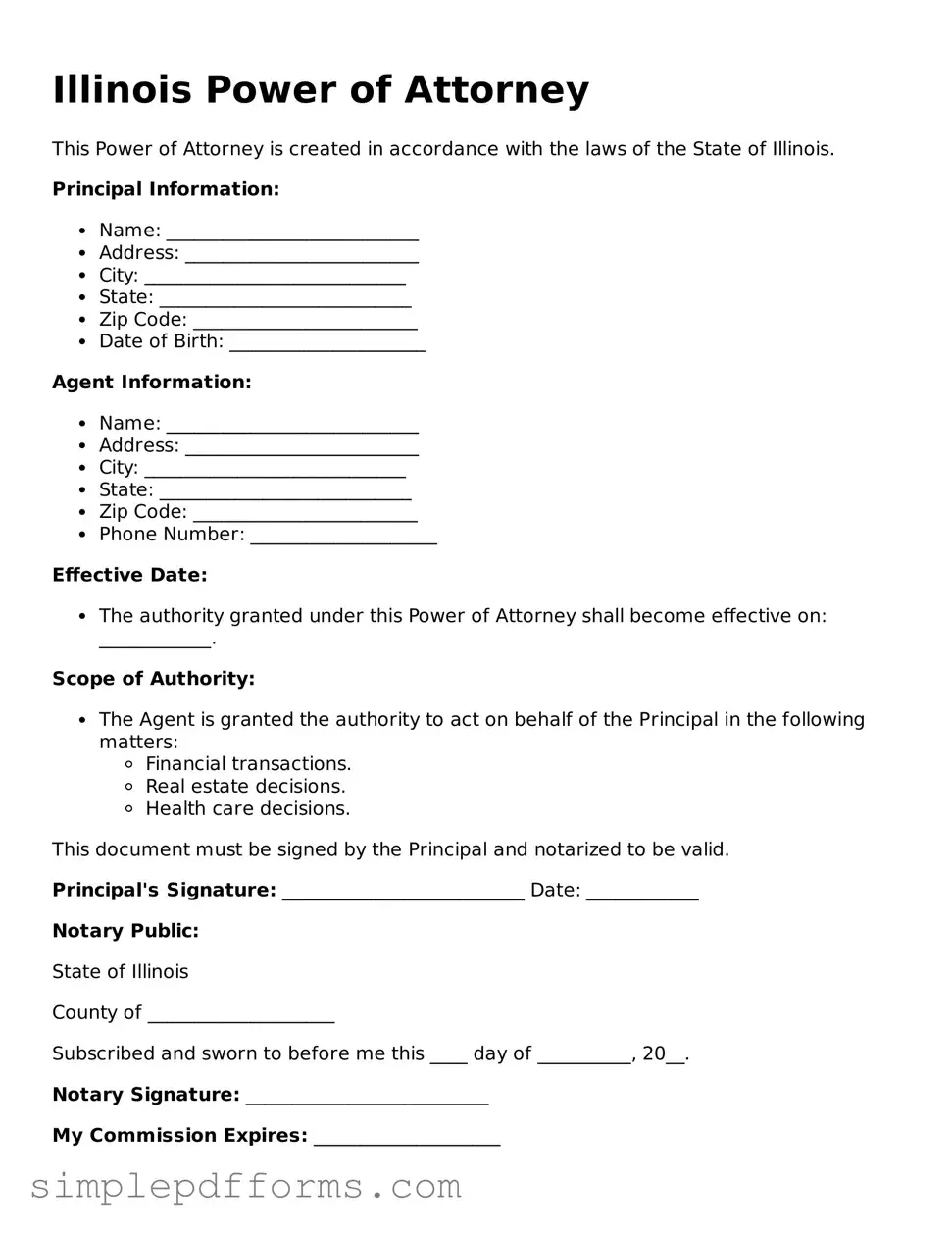Attorney-Verified Power of Attorney Document for Illinois State
The Illinois Power of Attorney form is a legal document that allows an individual to designate another person to make decisions on their behalf. This form is essential for ensuring that personal, financial, and healthcare decisions can be managed by a trusted representative when the individual is unable to do so. Understanding the nuances of this form can empower individuals to take control of their future and protect their interests.
Open Power of Attorney Editor Now

Attorney-Verified Power of Attorney Document for Illinois State
Open Power of Attorney Editor Now

Open Power of Attorney Editor Now
or
Get Power of Attorney PDF Form
Your form is waiting for completion
Complete Power of Attorney online in minutes with ease.